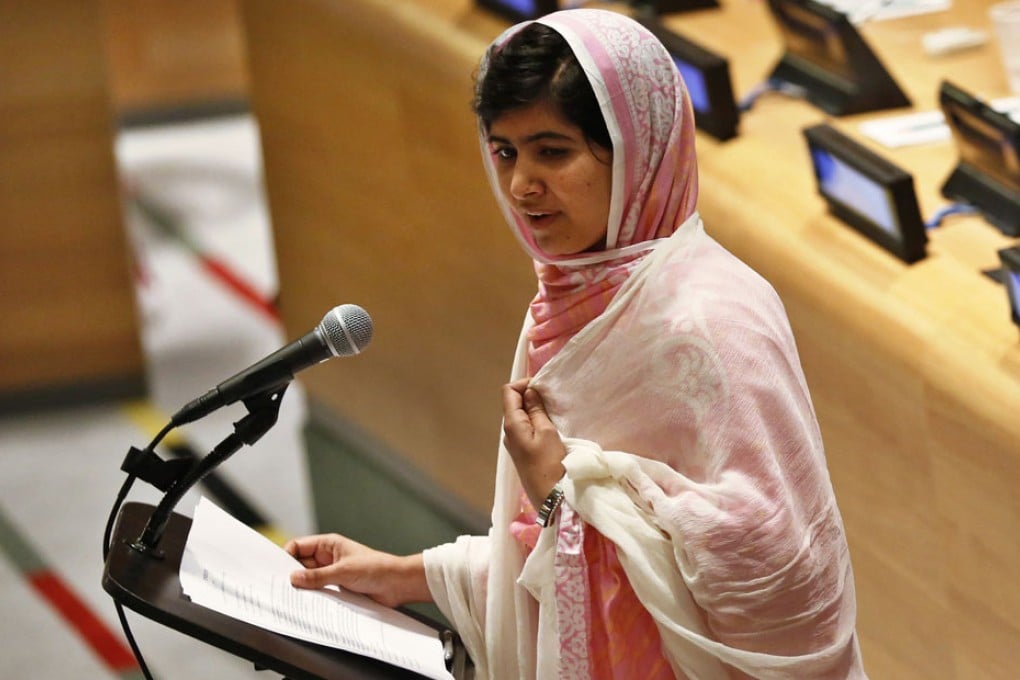Opinion | No challenge too daunting for two young women, miles apart
Alice Wu is grateful to two remarkable young women for inspiring Hong Kong with their courage in the face of adversity

Good news is hard to come by, and when an extraordinary feel-good story comes our way, it inspires us to be better individuals and jolts society to see opportunities for change. In the span of one week, we had two remarkable and empowering stories. And we have two young women to thank.
Malala Yousafzai, a Pakistani activist who fought for education rights for girls, for which she was shot by a Taliban gunman last October, gave a "sweet sixteen" speech at the UN a little over a week ago, and gave the world a glimpse of her extraordinary beauty - one that stems from her purpose in life.
What Malala went through just to attend school may be unimaginable to most of us, because no one in Hong Kong has to risk their life to get an education. Yet for this city's ethnic minorities, universal basic education isn't always accessible. Without knowledge of the Chinese language and schools equipped with the right curriculum and teachers, these students are systematically left behind in Hong Kong.
Malala's personal triumph against savagery, and her recovery, with renewed strength and hope, must be a call to action for us.
As Malala spoke up for people's right to be educated, we, too, must speak up. Even with 12 years of compulsory basic education, Hong Kong is still not paying adequate attention to second-language needs. If education is what equips the young with the tools of success, we are systematically failing those with special learning needs, and we have been obstructing their pursuit of further education and, eventually, gainful employment.
Too many children of Hong Kong's ethnic minority communities do not make it far up the education ladder. Their under-representation in local higher education has even made the UN Human Rights Committee concerned, and it is a system that former civil servant and current director general of Oxfam Hong Kong Stephen Fisher calls unjust, because it creates poverty.
